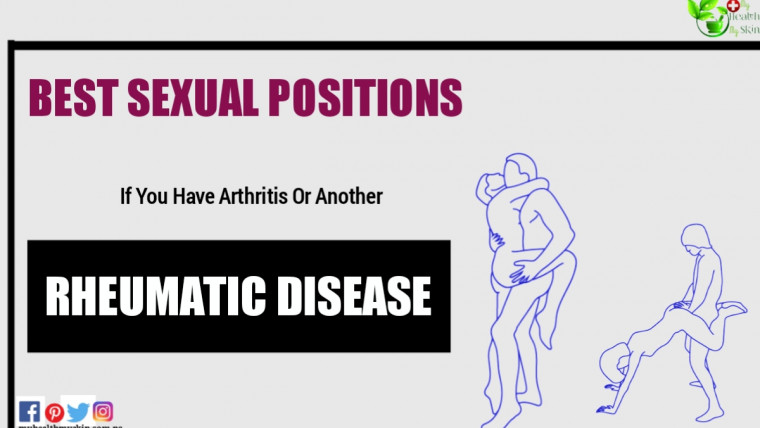Cymbalta (duloxetine) is used for the treatment of major depressive disorder, fibromyalgia (FM), diabetic peripheral neuropathic pain, chronic pain states associated with chronic low back pain, generalized anxiety disorder, chronic pain states associated with pain due to osteoarthritis of the knee in patients over the age of 40 years.
Cymbalta is effective in maintaining clinical improvement during continuous treatment for up to six months in patients who have responded to initial treatment.
Generalized anxiety disorder is defined as excessive anxiety and worry, present more days than not, for at least six months. Excessive anxiety and worry must be difficult to control and must impair your daily functions.
In this post, my health my skin will explain to you in detail why people claim Cymbalta ruined my life and how this changes take place. But before heading to it, we will give you brief information regarding Cymbalta.
[lwptoc]
What is cymbalta?
Cymbalta is a medication that contains the active substance duloxetine. Available as gastro-resistant capsules (white and blue: 30 mg, green and blue: 60 mg). The term “gastro-resistant” indicates that the contents of the capsules pass through the stomach without being broken down until they reach the intestine. In this way, the active substance is not destroyed by stomach acids.
How is Cymbalta used?
When used to treat depression, the recommended dose of Cymbalta is 60 mg once daily. The patient’s response to the drug is usually apparent after two to four weeks. In patients who respond to Cymbalta, treatment should be continued for several months to prevent relapse, or for longer in patients who have had recurrent bouts of depression in the past.
When used to treat diabetic neuropathic pain, the recommended dose is 60 mg daily, however some patients may require a higher dose of 120 mg daily. Response to treatment should be assessed regularly.
When given to treat generalized anxiety disorder, the recommended starting dose is 30 mg once daily, however the dose may be increased to 60, 90 or 120 mg, depending on the patient’s response. Most patients need a dose of 60 mg per day. In addition, patients with major depression should be given a starting dose of 60 mg once daily. In patients who respond to Cymbalta, treatment should be continued for several months to prevent relapse of the disorder.
The dose of Cymbalta should be gradually reduced when stopping treatment.
You may also be interested in:
How Topamax Ruined My Life And What I Did To Recover
10 Important Facts About Round Blue Pill 031 Xanax You Shouldn’t Ignore
Pimple Like Bump On Clitoral Hood: 13 Causes And Treatment
How does cymbalta work?
The active ingredient in Cymbalta, duloxine is a serotonin and norepinephrine reuptake inhibitor class that works by increasing the levels of the neurotransmitters serotonin and norepinephrine in the brain.
Neurotransmitters are chemicals that enable communication between nerve cells. By inhibiting their reuptake, duloxetine increases the amount of these neurotransmitters in the spaces between these nerve cells, increasing the levels of communication between the cells.
As these neurotransmitters are involved in maintaining euphoria and reducing the sensation of pain, inhibiting their reuptake by nerve cells may improve symptoms of depression, anxiety and neuropathic pain.
However, there have also been questions about the safety and effectiveness of Cymbalta (duloxetine), regarding its potential for withdrawal symptoms and suicidal thinking.
How cymbalta ruined my life
As a result of cymbalta side effects, a lot of people consider cymbalta ruined my life and they never recommend this medication.
Symptoms associated with stopping treatment with Cymbalta have been reported, such as nausea (feeling sick), dizziness, headache, fatigue ( tiredness ), paraesthesia (numbness or tingling of parts of the body), vomiting, irritability, nightmares, insomnia, diarrhoea, anxiety, hyperhidrosis (excessive sweating), vertigo (false sensation of movement), drowsiness and myalgia (muscle pain). Patients should be monitored for these symptoms when deciding to discontinue treatment.
There have also been reports that Symptoms of serotonin syndrome may include changes in the patient’s mental status (eg, agitation, hallucinations, delirium, and coma), autonomic instability (eg, tachycardia (increased heart rate), unstable blood pressure, dizziness, sweating (sweating), flushing (reddening of the skin) and hyperthermia (increased body temperature)], neuromuscular symptoms [for example, tremor, rigidity, myoclonus (very sudden involuntary movements of the arms or legs during sleep), hyperreflexia (reflex reactions exaggerated) and lack of coordination], seizures and/or gastrointestinal symptoms (for example, nausea, vomiting and diarrhoea). As a matter of fact, these symptoms can last for weeks or even months in some cases.
For diabetic peripheral neuropathic pain, the following adverse events have been reported during clinical studies with the use of this medication:
Very common reaction (occurs in more than 10% of patients using this drug)
- Nausea (feeling sick), fatigue (tiredness), decreased appetite, dizziness, headache and drowsiness.
Following are the reviews of some of the people who have had severe side effects from using cymbalta.
- A 40-year-old female patient who was taking cymbalta to replace Celexa, the reason being burning pain in her buttock, especially while she slept. She said it was so wonderful to have rapid relief from the pain. But the side effects of cymbalta became a serious concern to her. She said she experienced vivid, real-life, non-stop dreams that occur every night. Her vision became blurry, and was often having burning pain in her ankles at night. She was also having auditory hallucinations, hearing what sounds like a radio conversation.
- Another cymbalta user claims that he used it only for a few days but it was a nightmare for him. Cymbalta withdrawal nightmares become the most challenging thing for him because he couldn’t sleep well, experienced headache, dry mouth, drowsiness, dizziness, and used to have suicidal thinking. The worst is the vivid sexual side effects of Cymbalta. Difficulty achieving erections and orgasm, insomnia, ear ringing, sudden urgent need to urinate, bad breath, coughing, excessive sweating, weight gain, weak feelings. He even got into drinking. Because of this irritation.
- In our third review regarding cymbalta, the patient said that she experienced fainting three times while on this medication. She wrote: “I can’t wait to get off this drug. It’s been scary”. I really can’t believe I didn’t put it together the first time I fainted. Now I’m being weened off Cymbalta. I’m usually more careful. I did not really investigate the side effects thoroughly.
- Another patient said that due to taking only a dose of Cymbalta at night, she was having wild thoughts racing through her head, crazy vivid nightmares, with incredible pain in her stomach, her heart and head pounding. She wrote on her timeline “I would rather suffer through the pain, constant tingling, and buzzing nerves in my legs than take a drug like this. I regret ever having tried this medication.
These were statements from people who claimed, Cymbalta ruined my life or Cymbalta ruined my marriage but it is surprising for most of us how can Cymbalta withdrawal nightmare symptoms destroy someone’s life. How can a medicine that has shown to be more effective than a placebo in treating the disorder, reducing pain and preventing the recurrence of symptoms change their life.
You may also be interested in:
Apple Juice: Does it Really Make Your Pee Pee Bigger? Check All Details Here!
TOP 10 important questions you need to know about diabetes
Is cymbalta approved?
This drug was approved by the United States Food and Drug Administration (FDA) in 2004. And has become a widely prescribed medication in the US. According to report, in 2020, Cymbalta was the 15th most prescribed medication in the US, with over 18 million prescriptions filled. The United States Food and Drug requires that all antidepressants, including this medication, carry an indication about the high risk of suicidal thoughts and behavior in children and young adults.
Is Cymbalta right for you?
If you are interested in trying Cymbalta, talk to your doctor. Be sure to carefully weigh the pros and cons and consider any negative interactions with other medications you are taking.
It’s a good idea, with any medication, to have a list of potential side effects handy. You may want to let people around you know about serious side effects, such as seizures, loss of touch with reality, or suicidal thoughts, so they know what’s going on, just in case.
In what cases is Cymbalta used?
Cymbalta is used to treat adults with the following conditions:
- Major depression,
- Peripheral diabetic neuropathic pain (damage to the nerves of the extremities which can occur in patients suffering from diabetes)
- Generalized anxiety disorder (chronic anxiety or nervousness about everyday issues).
However, the use of this drug in the US has been decreasing in recent years, as the medication has faced increased competition from other antidepressants and pain medications.
What studies were done on Cymbalta?
For major depression, Cymbalta was compared with a placebo (dummy treatment) in eight main studies involving 2,544 patients. Six of the studies looked at treating depression and assessed change in symptoms for up to six months. The other two studies, involving 288 patients with a history of recurrent episodes of depression for up to five years, looked at how long it took for patients who had initially responded to Cymbalta to relapse.
For neuropathic pain, Cymbalta was compared with a placebo in 12-week studies involving 809 diabetic adults. The main measure of effectiveness was the change in pain intensity each week.
For generalized anxiety disorder, Cymbalta was compared with a placebo in five studies involving a total of 2,337 patients. Four studies looked at treatment of the disorder by measuring symptoms after nine to 10 weeks. The fifth study looked at how long it took for symptoms to return in 429 patients who had initially responded to Cymbalta.
What is the benefit of Cymbalta according to the studies?
Despite the mixed results of the depression studies, Cymbalta was more effective than the placebo in four of the studies. In the two studies in which the approved dose of Cymbalta was compared with a placebo, Cymbalta was more effective. It also took longer for symptoms to return in patients receiving Cymbalta compared to those receiving a placebo.
For the treatment of diabetic neuropathic pain, Cymbalta was more effective than the placebo in reducing pain. In both studies, pain reduction was observed from the first week of treatment for up to 12 weeks.
For generalized anxiety disorder, Cymbalta was also shown to be more effective than a placebo in treating the disorder and preventing the recurrence of symptoms.
You may also be interested in:
Does Yodi Pills (Orji) Work Are Result Permanent For Weight Gain?
How To Spot Fake Blue B707 Xanax Bars Drug
What Is The Difference Between Mylan A4 Vs Xanax 2mg?
What risks (side effects) are associated with Cymbalta ?
The most common side effects (side effects) of Cymbalta (seen in more than 1 in 10 patients) are nausea (feeling sick), headache, dry mouth, drowsiness and dizziness. Most of them are mild or moderate, appear from the beginning of treatment and become milder during the course of treatment. The full list of all side effects reported with Cymbalta is included in the package leaflet.
This medication should not be given to people who may be hypersensitive (allergic) to duloxetine or any of the other ingredients of the medicine.
It should not be used in combination with monoamine oxidase inhibitors (another group of antidepressants), with fluvoxamine (another antidepressant), or with ciprofloxacin or enoxacin (types of antibiotics).
Also, Cymbalta should not be given to patients with certain liver diseases or to patients with severe kidney dysfunction. Treatment should not be administered to patients with uncontrolled hypertension (high blood pressure), due to the risk of hypertensive crisis (sudden, dangerously elevated blood pressure).
As with other antidepressants, isolated cases of suicidal ideation and behavior have been observed in patients taking this medication, especially during the first weeks of treatment for depression. If a patient taking this drug has suicidal thoughts or experiences during any phase of treatment, they should discuss this with their doctor immediately.
Conclusion: how cymbalta ruined my life
Every drug has side effects that depend on the gender, age group, and general health of the patient. The side effects of a drug also depend on the duration of treatment. It is an excellent medication for major depressive disorder, fibromyalgia (fm), diabetic peripheral neuropathic pain, chronic pain states associated with chronic low back pain, generalized anxiety disorder, chronic pain states associated with pain due to osteoarthritis of the knee in patients over the age of 40 years. But at the same time, it has many side effects. Especially for women and a lot of Cymbalta users who claimed Cymbalta ruined my life.
If you want to read more articles similar to how cymbalta ruined my life and how i recovered, we recommend you visit our Physical & Mental health category. Share on your social networks and stay tuned for upcoming articles.










